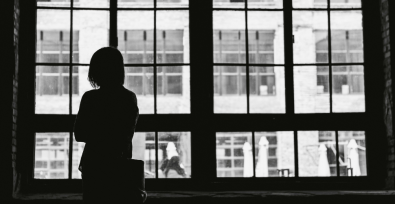“When someone is in trouble, the hope is that they will be rescued.” Right? When academic Dr Pankhuri Agarwal wrote this statement in The Conversation, she was in fact exposing that her modern slavery research contradicts this long-held belief.[1]
A quick search will show countless nonprofits around the world leading with a rescue model. That’s to say their approach is to find people living in conditions of modern slavery and pay their “slave-holder” for their release, often appealing for donations in the process.
Examples of rescue model nonprofits include the controversial US charity Our Rescue.[2] Renowned for its claims of dramatic sting operations, it is accused of misleading donors.[3] Project Rescue Children is another, faking stories of child trafficking to raise money.[4]
I understand that when learning about modern slavery for the first time, the story arc of rescue is very appealing. Reading dramatic narratives, accompanied by photos and videos depicting the horrors of a life in modern slavery, only to change on a dime – almost literally – with a donation of just a few dollars.
Freedom United raises concerns
However, Freedom United is uncomfortable with the rescue model of operating. Why? For several reasons. Centring attention to the rescue diminishes focus on the need to address the root causes of extreme exploitation, which would prevent people from being trapped in the first place.
We believe that the most effective anti-slavery strategy is empowerment. When empowered, people can resist exploitation. And should someone find themselves exploited, they are better equipped to escape. But empowerment is a long process.
It’s about creating an enabling environment that protects people from vulnerabilities. To protect people new laws and regulations must be put in place that tackle systemic prejudices, marginalization and discrimination. These long-term goals are not as appealing to donors.
Prioritizing victims and survivors’ experience
For organizations leading with rescue, centring victims’ and survivors’ story is essential. At the moment of rescue, or even soon after, victims are not best-positioned to review, approve and understand the implications of their story being made public. The moment of rescue is often a moment of vulnerability. And stigma abounds for people who have lived in modern slavery.
Freedom United has clear content guidelines that insist on respecting survivor’s right to privacy and dignity.[5] Our My Story, My Dignity campaign seeks to counter sensationalist reporting distorting understanding of modern slavery and risking secondary victimization.[6]
Also placing precedence on the act of rescue dismisses the importance and challenge of victims’ journey to full recovery. Whilst the moment of freedom is celebrated, little attention is given beyond to the future lives of the rescued. Dr Pankhuri Agarwal’s study of rescued bonded labourers in India showed many were marooned in the legal process for up to 37 years after their rescue to determine their status and entitlement to state support.
The reality of retrafficking
She highlights that “There is a stark gap between visions of freedom, and the harsh, unfulfilled realities of post-rescue life, which for many is chiefly one of waiting while the law, welfare agencies and government offices process their cases. This waiting means rescued workers are often forced to return to exploitative work.”[7]
Rethreaded, a nonprofit providing employment, career development, and supportive services to victims of trafficking explains, “The reality is that leaving the life, or being pulled from the life of human trafficking is likely the easiest part of a survivor’s journey. Most survivors will face what seems like insurmountable barriers with little to no access to resources.” And pointedly, Rethreaded asks: “Where is the rescuer then?”[8]
Perhaps most concerningly, evidence suggests that a rescue model can perpetuate slavery. Payment provides an incentive for traffickers to bring more people into slavery in the hopes of selling their victims. UNICEF called this practice ‘intolerable’, since it implicitly accepts that human beings can be bought and sold.[9]
UNICEF were referring to Christian Solidarity Worldwide whose anti-slavery strategy for Sudan, was, and still is today, to buy back people in slavery. Christian Solidarity stand by this practice saying it’s best for those they rescue and that they employ safeguards against fraud, and that allegations of fraud “remain today unsubstantiated”.[10]
Building resilience to exploitation
I do not dismiss the value to an individual of being supported to escape a situation of modern slavery. It can be an incredibly positive opportunity, which with the right support, can mark the beginning of true freedom.
Freedom United wants to build resilience to stop people from being exploited in the first place. The work of organizations that put rescue first ahead of all else makes little contribution to that mission. Instead the best examples might be best described as taking a sticking plaster to the problem of modern slavery.
So, I encourage readers to be cautious about rescue appeals and ask – is this activity helping the cause of ending modern slavery? Or as Rethreaded puts it powerfully “Is it the self-recognition or the perceived admiration that comes with “rescuing” a person from a crisis that’s the attraction?”[11]
Footnotes:
- [1] https://theconversation.com/what-its-really-like-to-be-rescued-from-modern-slavery-243291
- [2] https://ourrescue.org/
- [3] https://www.vice.com/en/article/a-famed-anti-sex-trafficking-group-has-a-problem-with-the-truth/
- [4] https://www.bbc.co.uk/news/articles/ckkgdwer3rvo
- [5] https://www.freedomunited.org/my-story-my-dignity-guidelines/
- [6] https://www.freedomunited.org/advocate/my-story-my-dignity/
- [7] https://www.bath.ac.uk/announcements/when-rescue-from-modern-slavery-does-not-mean-freedom-research-flags-reality-of-post-rescue-life/
- [8] https://rethreaded.com/why-the-word-rescue-is-harmful-to-the-anti-trafficking-movement/
- [9] https://www.nytimes.com/1999/03/12/world/un-criticism-angers-charities-buying-sudan-slaves-release.html
- [10] https://csi-usa.org/slavery/faq/
- [11] https://rethreaded.com/why-the-word-rescue-is-harmful-to-the-anti-trafficking-movement/







-
Follow us on Facebook
5.6M
-
Follow us on Twitter
32K
-
Follow us on Instagram
8K
-
Subscribe to our Youtube
5.7K
Donate